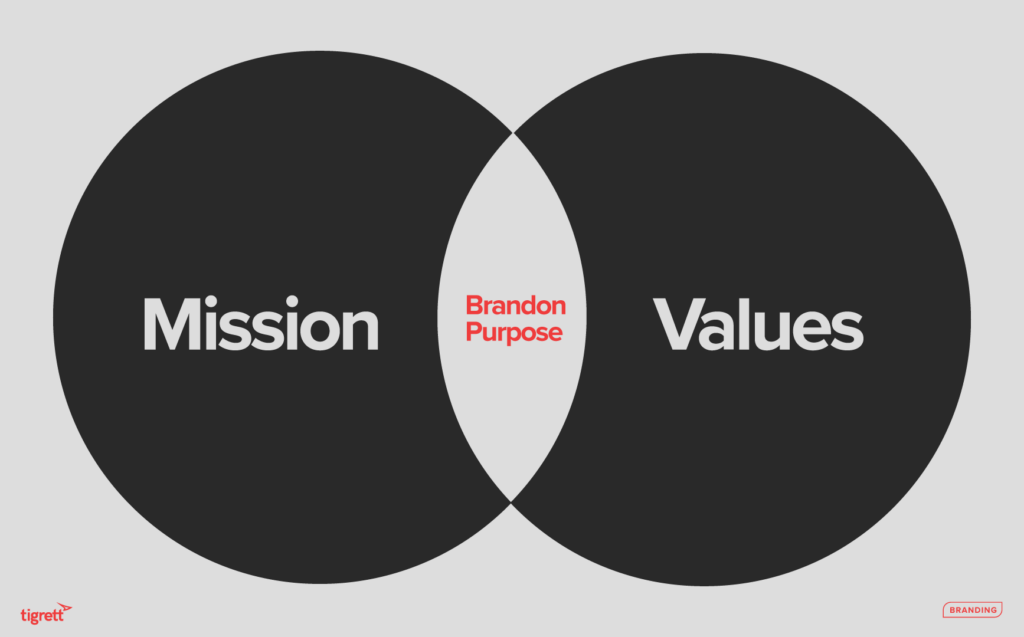What is Brand Purpose and Why is it Important?
Brand purpose is a term that has been buzzing around the advertising and branding world for quite some time now. While it may sound like just another industry buzzword, brand purpose is a critical concept that all companies need to understand and implement to succeed in today’s marketplace.
So, what exactly is brand purpose?
In simple terms, it’s the reason a brand exists beyond making a profit. A brand’s purpose goes beyond selling products or services; it’s the reason why a brand does what it does. It’s the underlying mission or values that drive a company’s decisions and actions. Defining a company’s purpose is the first step in developing your brand strategy and can be used as a guiding light downstream in brand communications.

A brand purpose serves as the foundation for a brand’s identity and messaging. It’s what sets a brand apart from its competitors and resonates with its audience. Brands that have a clearly defined purpose are more likely to connect with consumers on an emotional level and build long-term relationships. Additionally, having a clear purpose can also help a company attract and retain employees who share its values. This can lead to a more engaged and motivated workforce, which can ultimately lead to better business results.
However, it’s important to note that a brand purpose isn’t something that can be fabricated or conjured up overnight. It needs to be authentic and genuine, reflecting the values and beliefs of the company and its stakeholders. During our business immersion workshops, we work closely with key stakeholders to uncover these internal truths about your brand. Consumers are increasingly skeptical of brands that try to jump on the purpose-driven bandwagon without having a genuine commitment to social or environmental issues.
How can an advertising agency help develop and communicate brand purpose?
Advertising agencies can play a crucial role in helping clients develop and communicate their brand purpose.
- Research and insights: Agencies can conduct research to gain insights into the target audience and their values. This research can help the agency and client identify the core beliefs and values that can form the basis of the brand purpose. We do this during our collaborative business immersion workshops.
- Defining the brand purpose: Based on the research and insights, advertising agencies can work with clients to define their purpose. This involves identifying the company’s core beliefs and values and how they align with their customers’ values.
- Brand messaging strategy: Once the brand purpose is defined, the advertising agency can develop a brand messaging strategy that reflects the purpose, values, mission, etc. This strategy can guide all brand communications, including advertising campaigns, social media, and other marketing materials.
- Advertising campaigns: Advertising agencies can develop advertising campaigns that communicate the brand purpose effectively. These campaigns can include ads, social media posts, and other marketing materials that reflect the brand purpose.
- Brand activation: Advertising agencies can also help clients activate their brand purpose through events, sponsorships, and other brand activations that align with the brand purpose.
- Business alignment: Finally, advertising agencies can help clients align their brand purpose with their overall business strategy. This can involve identifying how the brand purpose can inform the company’s product development, marketing, and overall business operations.
Conclusion
In conclusion, brand purpose is a crucial element for any company looking to establish a strong identity and connect with its audience. It’s more than just a catchy slogan or a marketing gimmick; it’s the reason why a brand exists beyond making a profit.



